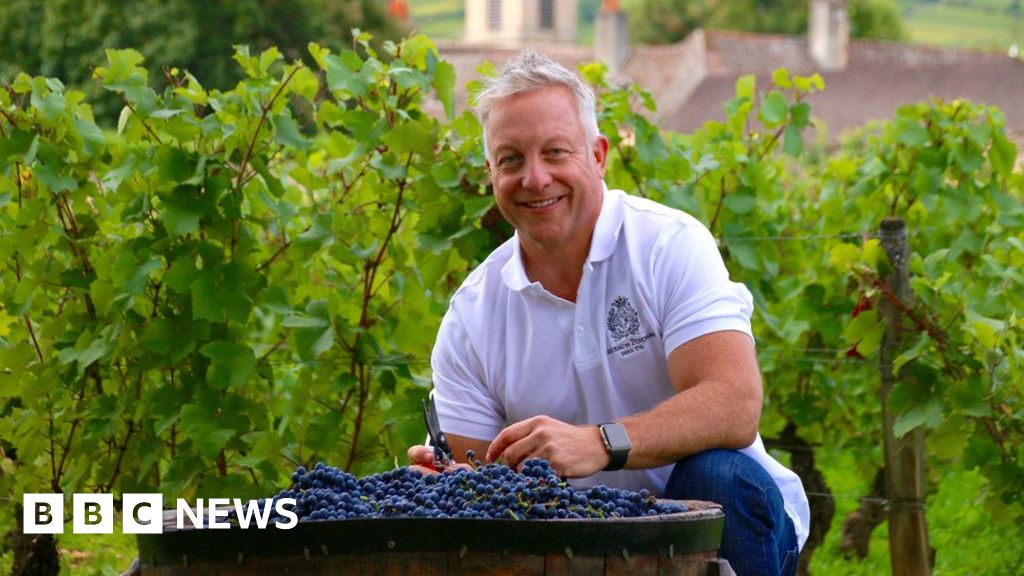March 23, 2020
By Will Small, Business correspondent, BBC News
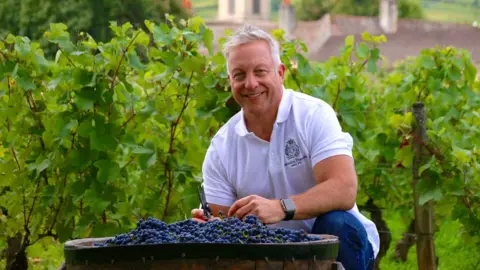 Familial Carabello Boom
Familial Carabello BoomThe BBC's weekly series The Boss profiles various business leaders from around the world. This week we talk to Michael Baum, American software millionaire and vineyard owner.
When American technology entrepreneur Michael Baum bought a prestigious winery in the Burgundy region of France, it caused a row across the Atlantic.
Michael (57 years old) says, “(French newspaper Le Figaro) covered the advertisement on its website, and there were about 2,500 comments on the article.”
“You could split the comments down the middle. Half were 'Fucking foreigners stealing our heritage.' The other half was 'If it weren't for Americans you'd all be eating sauerkraut right now.'
“So you could say it was quite contentious.”
It was in 2014, when Michael bought Château de Pommard and its 25 hectares (62 acres) of vines for an undisclosed multi-million sum.
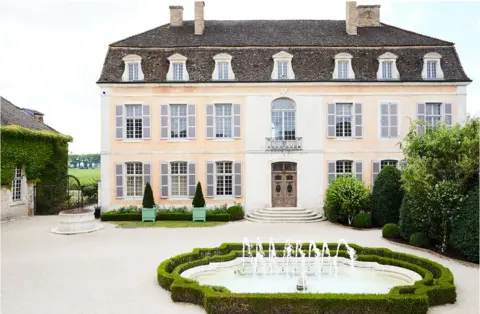 Chateau de Pommard
Chateau de PommardHe could afford the price because he had made a fortune in Silicon Valley, particularly as the founder and former CEO of a software company that almost none of us had ever heard of — Splunk.
It's complicated stuff, but in simple terms, its software allows companies to monitor their data and security systems. With annual revenues of $1.8bn (£1.6bn), Splunk's customers are many of the world's largest companies. They include 92 of the Fortune 100 list of the 100 largest companies in the United States by annual sales volume.
Michael and two of his co-founders launched Splunk in 2003, and today it is a listed company with a market capitalization (the combined value of all its shares) of more than $16 billion. Although Michael retired from day-to-day involvement with the business in 2009, he says he remains the largest individual shareholder.
Today, in addition to running his own French winery, he sits on the board of eight other companies in the United States and Europe, and has a large number of additional business investments. He is also the founder of a mentoring and funding program for young entrepreneurs called Founder.org.
“I like to keep busy,” he says. “Some people, who we call entrepreneurs or creatives, are wired this way. For me, business is about creativity, it's about building things. That's what interests me.”
Born and raised in Philadelphia, Michael says he had little interest in computers until his sophomore year at the city's Drexel University in the early 1980s. After a visit by the late Steve Jobs to the college, everyone bought a computer from Apple.
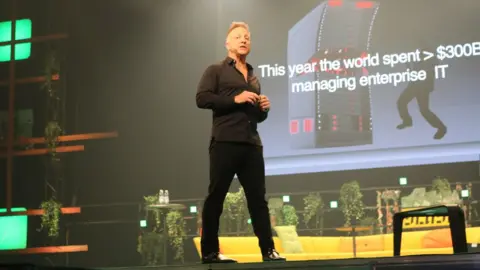 Michael Baum
Michael Baum“Suddenly, I was like, ‘How do these things work?’” Michael says. “So I headed headlong into software.”
Switching his major college course from electrical engineering to computer science set him on an entrepreneurial career path in the technology sector.
After graduating, Michael's first business venture was a software system for investors that studied past stock market conditions to try to predict future performance. It was called Reality Online, and was eventually purchased by the business information company Reuters.
He then obtained a master's degree in business administration from the Wharton School of the University of Pennsylvania and moved to Silicon Valley.
Among other companies he successfully developed and sold were a software system for early portable computers, called Pensoft, and the online money exchange company Dotbank.
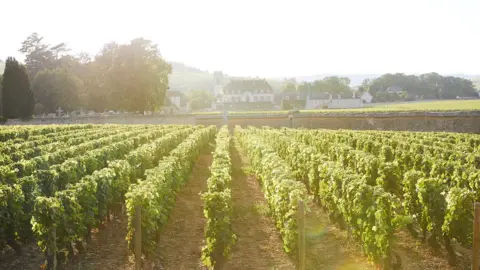 Chateau de Pommard
Chateau de PommardHowever, he lived in California, America's main wine-growing state, and did not like American wine.
“I didn't think I liked wine when I was younger, because I didn't like American things,” he says. “It's often too heavy, too sweet, too alcoholic.
“Then I went to Europe for the first time when I was 28, and tried French wine for the first time. That was a huge revelation.”
“French wines are much more elegant, much more mineral, much more traditional. It's night and day.”
“Then in 2012, we (my wife and I) moved to Paris for a year, just to take a break, and I started looking more intensely at doing something in wine in France. We went to Burgundy, and I thought to myself ‘This is it, this is ground zero, this is it. Standard. “I really liked the wines of Burgundy.”
The Burgundy region is home to some of the world's most valuable and expensive wines, producing mostly white wines made from Chardonnay grapes, and red wines made from Pinot Noir. Wineries and vineyards are often very small, with some producers having a few rows or plots of vines here and there.
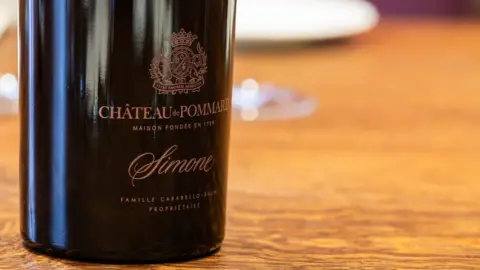 Mike Lynmcollen
Mike LynmcollenThe area is located about 300 kilometers (180 miles) southeast of Paris, and until recent years was unofficially closed to foreign investment because the current French owners get first refusal on any nearby wineries, vineyards and plots of land offered for sale. They are mostly cut off.
For this reason, foreign investment in French wine has historically been focused on the larger Bordeaux region, near the Atlantic coast in the country's southwest.
Michael was able to purchase Chateau de Pommard, and become the first American to buy a winery in Burgundy, thanks to a bit of luck – the previous owner had established the company he controlled in Luxembourg rather than France.
He now divides his time between Burgundy and Silicon Valley. “It's fun to go back and forth and experience two completely different worlds,” he says.
Since Michael invested in Burgundy, another American has followed suit – billionaire sportsman Stan Kroenke, owner of the American football team Los Angeles Rams and the English club Arsenal.


Tom Ashworth, chief executive of UK wine merchants Yap Brothers, says there is growing international interest in buying the best wineries in the Burgundy region, because the wines produced by these companies have risen in global popularity in recent years.
“It's not very surprising that while wine investors have shifted their attention from buying Bordeaux to Burgundy bottles over the past decade, billionaires are snapping up the ranges themselves,” says Ashworth.
He adds that it also helps that Burgundy's most famous sub-region – the Côte d'Or – is much more beautiful than the main vineyard region of Bordeaux.
But if Michael had to choose just one region – Silicon Valley or Burgundy – which region would he choose?
“They're like chocolate and peanut butter, and I love them both,” he says.


